In Empire’s Long Shadow: Modern Constructions of Central Eurasia, 1900-1941
by Robert Bird
In recent years the University of Chicago has become home to a group of innovative young scholars—both faculty and PhD students—working on issues related to the modern construction of new cultural institutions, practices and histories in 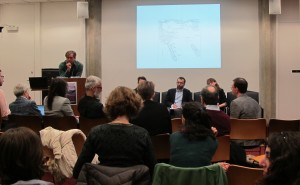 Central Eurasia. Supported by faculty from a range of departments, these PhD students have rejuvenated the Committee on Central Eurasian Studies and maintained a lively program of events. On 26-27 February 2016 the University hosted a major international conference designed to showcase their work and bring them into dialogue with leading senior scholars in the field, as well as with colleagues within the Committee for Central Eurasian Studies and from across the University.
Central Eurasia. Supported by faculty from a range of departments, these PhD students have rejuvenated the Committee on Central Eurasian Studies and maintained a lively program of events. On 26-27 February 2016 the University hosted a major international conference designed to showcase their work and bring them into dialogue with leading senior scholars in the field, as well as with colleagues within the Committee for Central Eurasian Studies and from across the University.
All twenty presentations examined aspects of Central Eurasian history and culture at a time when empires crumbled in the wake of World War I and revolutionary transformation rocked the entire territory, from Iran and the Turkish Republic to the Soviet republics of Central Asia and Transcaucasia and across Xinjiang, Mongolia, and Siberia. Political developments and the formation of national institutions were accompanied by rapid changes in culture, most strikingly in language, literacy, gender and religion. By the beginning of World War II, Central Eurasia had taken shape as a set of ethnically-defined territorial units. Papers examined both this unprecedented political order and the equally unprecedented cultural forms it engendered.
Continue reading →
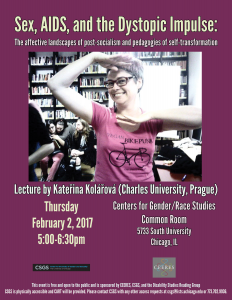 On February 2, Kateřina Kolářová, Assistant Professor of Cultural Studies in the
On February 2, Kateřina Kolářová, Assistant Professor of Cultural Studies in the
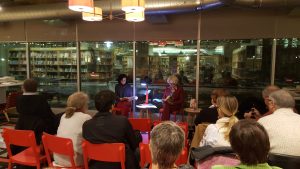
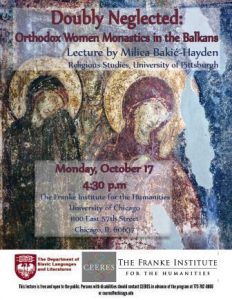
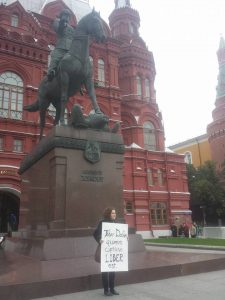
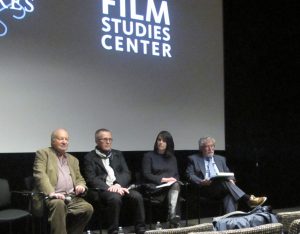
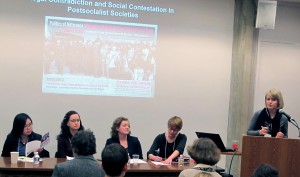
 Central Eurasia. Supported by faculty from a range of departments, these PhD students have rejuvenated the Committee on Central Eurasian Studies and maintained a lively program of events. On 26-27 February 2016 the University hosted a major international conference designed to showcase their work and bring them into dialogue with leading senior scholars in the field, as well as with colleagues within the Committee for Central Eurasian Studies and from across the University.
Central Eurasia. Supported by faculty from a range of departments, these PhD students have rejuvenated the Committee on Central Eurasian Studies and maintained a lively program of events. On 26-27 February 2016 the University hosted a major international conference designed to showcase their work and bring them into dialogue with leading senior scholars in the field, as well as with colleagues within the Committee for Central Eurasian Studies and from across the University.